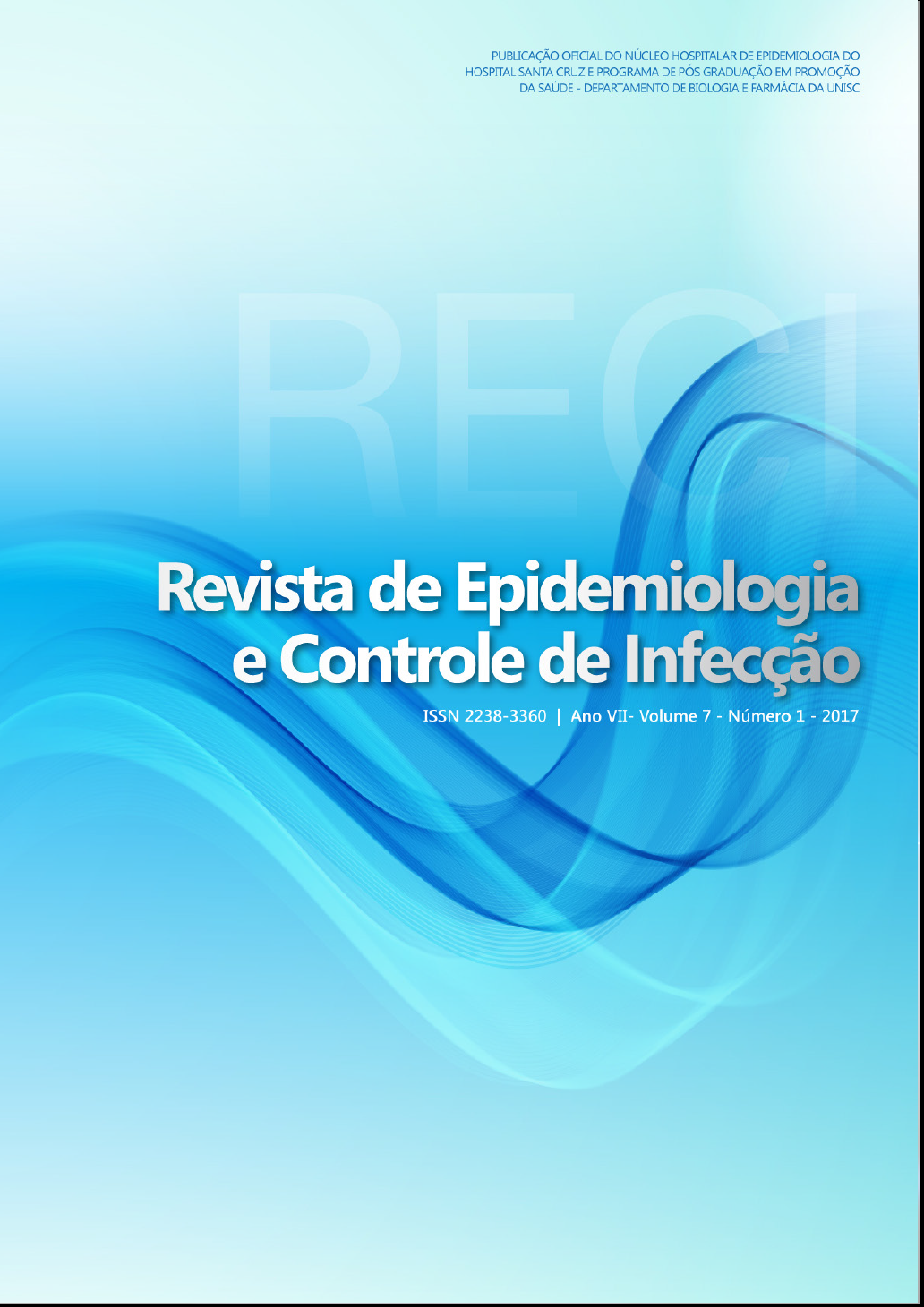Escherichia coli resistente a ciprofloxacina en pacientes internados en hospital universitario de Manaus, 2015
DOI:
https://doi.org/10.17058/reci.v7i1.7758Resumen
ntecedentes y objetivos: Las infecciones del tracto urinario están entre las más comunes de las Infecciones Relacionadas a la Atención de Salud, constituyendo la Escherichia coli el agente más implicado. Sobre dicha base, se buscó estimar la frecuencia de infecciones del tracto urinario por Escherichia coli, incluyendo aquellas resistentes a ciprofloxacina, en pacientes internados en el Hospital Getúlio Vargas, en 2015. Métodos: Evaluación de urocultivos infectados (114 urocultivos > 105 UFC/ml), en particular por Escherichia coli (44 urocultivos > 105 UFC/ml) en pacientes internados y tabulación en Microsoft Excel para análisis estadístico. Resultados: Hallada prevalencia del 56,81% (25/44) de infecciones urinarias por Escherichia coli resistentes a ciprofloxacina, incidencia mayor en sexo femenino (56%). De las infecciones urinarias del hospital, la frecuencia de esta bacteria resistente a ciprofloxacina fue del 21,92% (25/144). Conclusiones: Las infecciones en el Hospital Universitario Getúlio Vargas se corresponden con la literatura: más comunes en sexo femenino, Escherichia coli como agente más frecuente, y con 56,81% de resistencia a ciprofloxacina. Palabras clave: Infecciones del tracto urinario, Escherichia coli, resistencia a los medicamentos, ciprofloxacinaDescargas
##submission.downloads##
Publicado
Cómo citar
Número
Sección
Licencia
The author must state that the paper is original (has not been published previously), not infringing any copyright or other ownership right involving third parties. Once the paper is submitted, the Journal reserves the right to make normative changes, such as spelling and grammar, in order to maintain the language standard, but respecting the author’s style. The published papers become ownership of RECI, considering that all the opinions expressed by the authors are their responsibility. Because we are an open access journal, we allow free use of articles in educational and scientific applications provided the source is cited under the Creative Commons CC-BY license.


